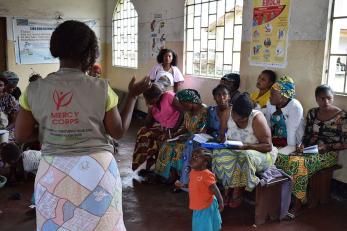The Ebola Effect: Economic Impacts of a Public Health Crisis

The tenth recorded Ebola epidemic in the DRC has lasted over one year and has killed more than 1,880 people to date. Active conflict and insecurity make this epidemic one of the most complex ever faced, with the disease anchored in areas with decades of endemic mistrust and violence.
Since the declaration of the epidemic as a Public Health Emergency of International Concern, the risk of border restrictions has increased, despite no medical or scientific evidence that demonstrate their usefulness. Border restrictions or closures push people from formal border stations to crossing points without the necessary medical controls to prevent the spread of the disease. Economic consequences of Ebola could pose a serious threat to the ongoing humanitarian response in DRC on which nearly 13 million people depend for lifesaving aid.
Mercy Corps has published a new analysis, which draws from its analyses and experience in Liberia, Sierra Leone, and DRC on the possible economic effects of the public health crisis. It illustrates that any response to the Ebola outbreak must seek to save lives as well as livelihoods, including the free of movement of goods and people. This analysis highlights DRC's unique context to lay a foundation for future research. The paper also presents the finding, in line with the recommendations of the WHO, that "any border restrictions that would disrupt the movement of necessary logistic supplies and human resources."